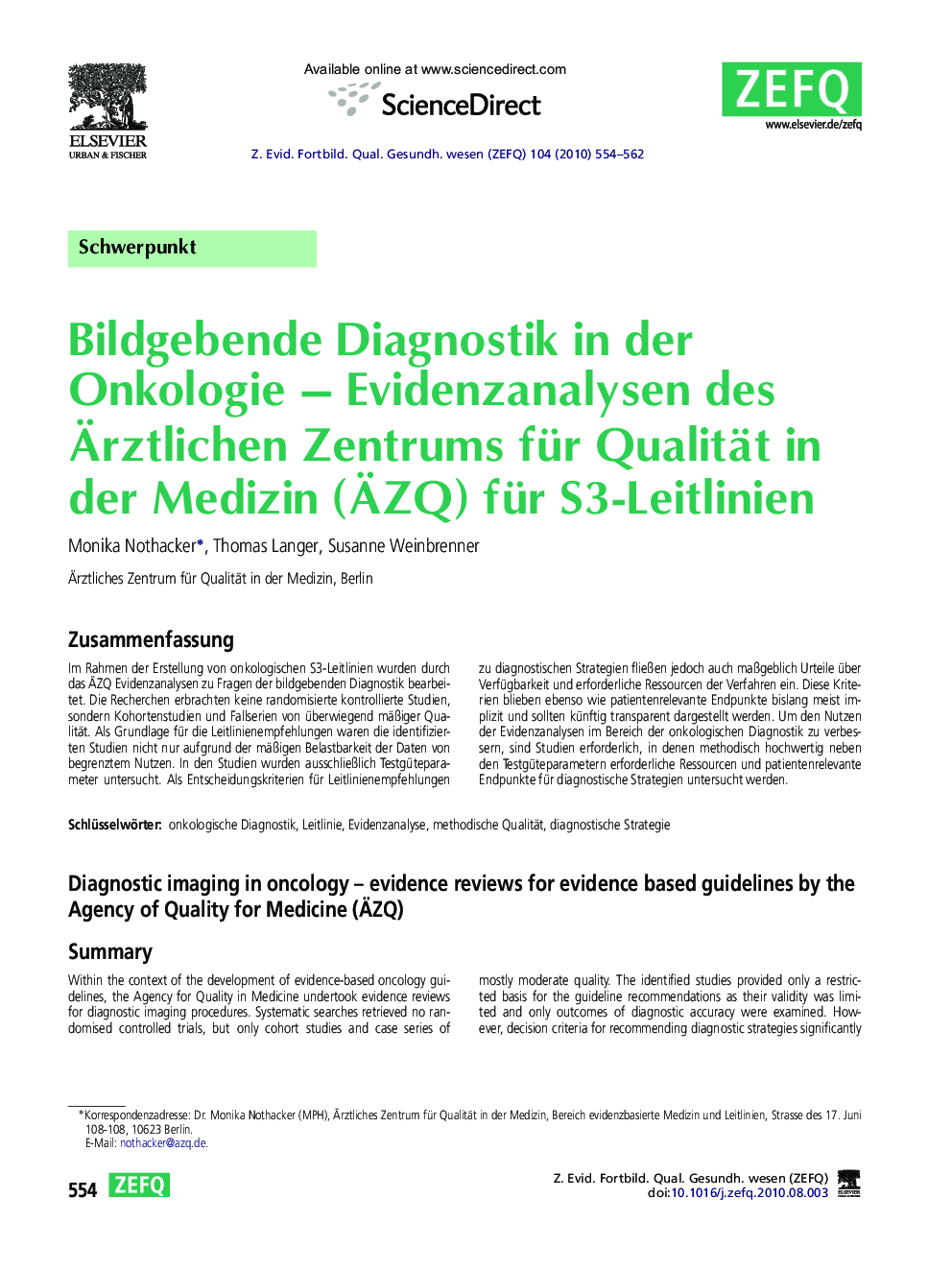| Article ID | Journal | Published Year | Pages | File Type |
|---|---|---|---|---|
| 1094718 | Zeitschrift für Evidenz, Fortbildung und Qualität im Gesundheitswesen | 2010 | 9 Pages |
Abstract
Within the context of the development of evidence-based oncology guidelines, the Agency for Quality in Medicine undertook evidence reviews for diagnostic imaging procedures. Systematic searches retrieved no randomised controlled trials, but only cohort studies and case series of mostly moderate quality. The identified studies provided only a restricted basis for the guideline recommendations as their validity was limited and only outcomes of diagnostic accuracy were examined. However, decision criteria for recommending diagnostic strategies significantly comprise judgements about required resources and availability of diagnostic imaging procedures. These criteria as well as patient out-comes were mostly implicit and should be explicated in future. In order to increase the relevance of evidence reviews for oncological diagnosis, high quality studies which examine resources and patient-centred outcomes for diagnostic strategies are required.
Related Topics
Health Sciences
Medicine and Dentistry
Public Health and Health Policy
Authors
Monika Nothacker, Thomas Langer, Susanne Weinbrenner,
